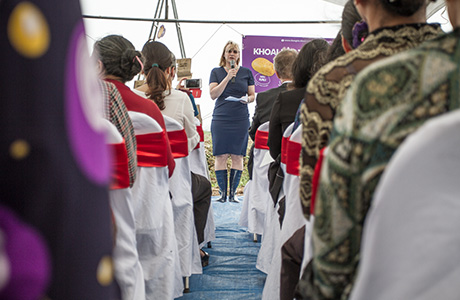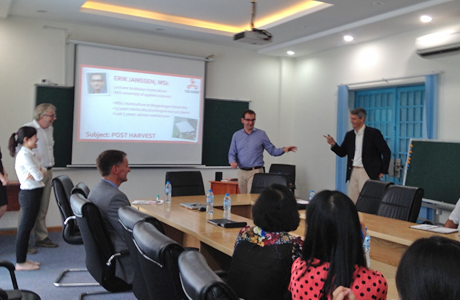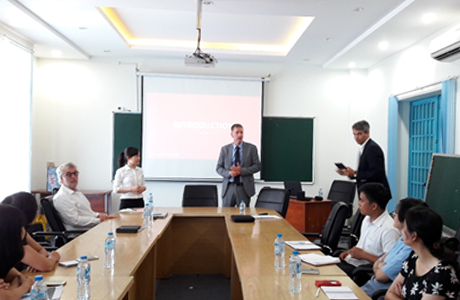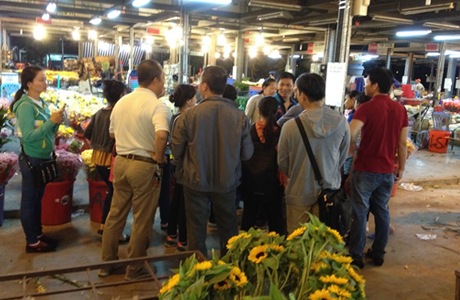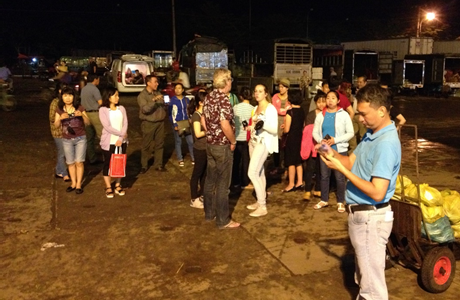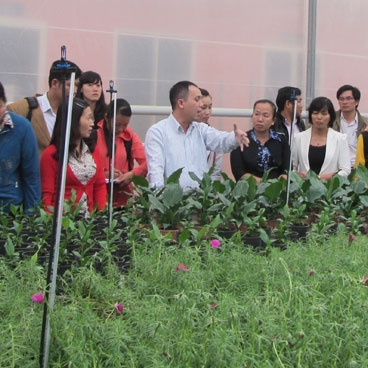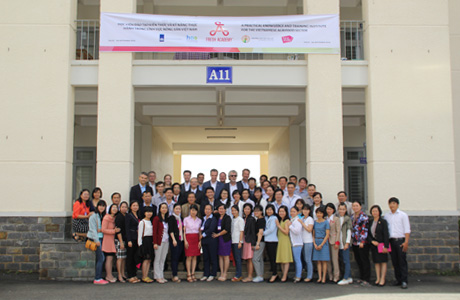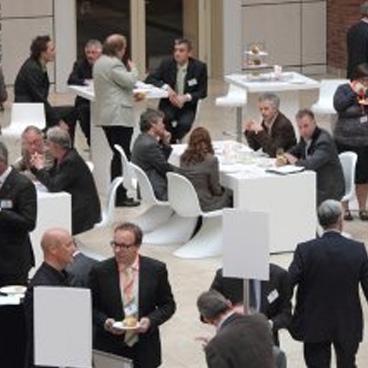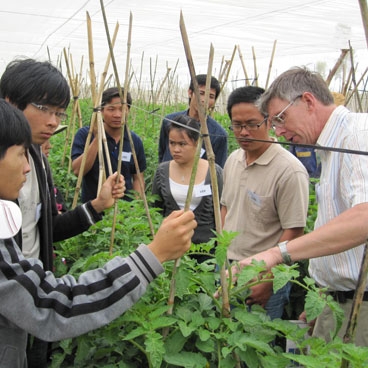The Dutch Vice-Minister of Agriculture and local authorities of Bac Ninh province visited an event in the field of the project “Growing out of poverty with potato” in Tien Du district, Bac Ninh on the occasion of potato harvest and delivery of training certificates to participating farmers.
“Growing out of poverty with potato” is 5 year PPP (Public Private Partnership) project (2014-2019) between the Ministry of Foreign Affairs of the Netherlands, Fresh Studio (local project management), Agrico, PepsiCo Vietnam and Dutch Wageningen University. With the objective of setting an example of a sustainable value chain for high quality potato in Vietnam, the project has been implemented for two years and has acquired promising achievements. The event is the result of commercial production trials for two Dutch potato varieties, Markies & Rosagold, before putting in mass production.
Potatoes provide an interesting opportunity to improve food security, support pro-poor development and boost a healthy, diverse diet in Vietnam. Despite being richer in fibre, vitamins, and minerals than rice or wheat, with the production requiring less water and land, production and consumption of potatoes in Vietnam are still very modest. Potato has also been proved a profitable addition to the current crops planted by small-scale farmers in Vietnam.
Siebe van Wijk, Managing Director of Fresh Studio stated during his presentation: “The 5-year project stimulates supply, fosters demand, develops the value chain and initiates a structural policy dialogue to support a sustainable potato sector in Vietnam. The project is successful when the Vietnamese potato sector can compete with imports and supplies of both the domestic table potato market and the potato processing industry with a consistent volume of high quality potatoes”.
On the supply side, the project focuses on testing high-yielding varieties, training farmers and production advisors. After two years the project obtained among others the following achievements:
- 2 high quality potato varieties were selected to be introduced in Vietnamese market.
- Purchase, test and introduction of tractors, planting and harvesting machines.
- 27 production advisers and 1690 farmers (70% female) were trained in potato production.
- Farmers and traders were connected during a series of field activities, after which more than 648 supply contracts were signed.
- Nearly 1000,000 consumers in the urban areas of Hanoi and Ho Chi Minh city were reached during awareness campaigns (online and offline) on nutritional values of potatoes and preparation modes.
- To understand the demand, preferences and behaviour of consumers, 1000 consumers participated in consumer research.
- The Potato Policy Discussion Platform has been formed and active with regular meetings and policy workshops.
Speaking at the event, Marjolijn Sonnema, Dutch Vice Minister of Agriculture stated:“As one of the world’s biggest agricultural manufacturers, the Netherlands hopes that our expertise will help Vietnam in enhancing food security, promoting sustainable agricultural production, increasing farmers’ incomes, and improving their livelihoods”.
With a smart approach and dedicated implementing partners, it is positive that the project will be able to build a robust system for potato sector which can sustain and flourish even after the project finishes. And the day when Vietnamese potato can compete with imports, supplying effectively for the domestic market will be in vision.

